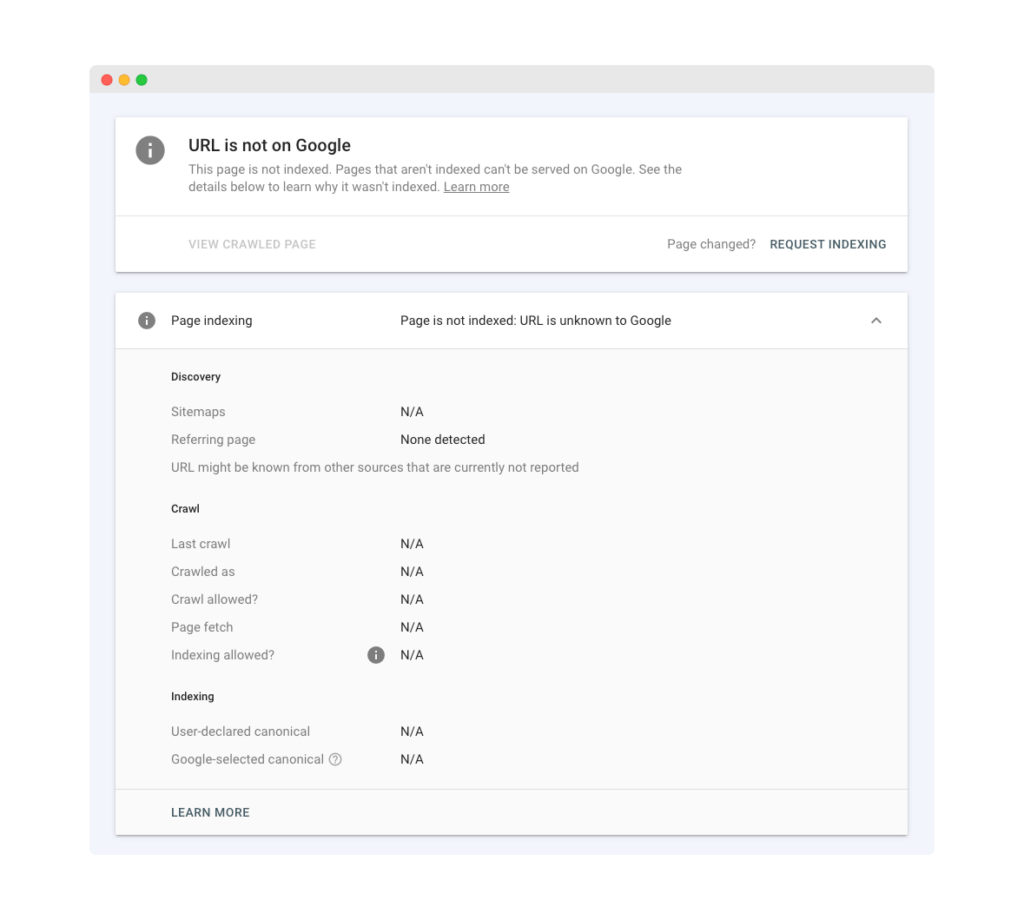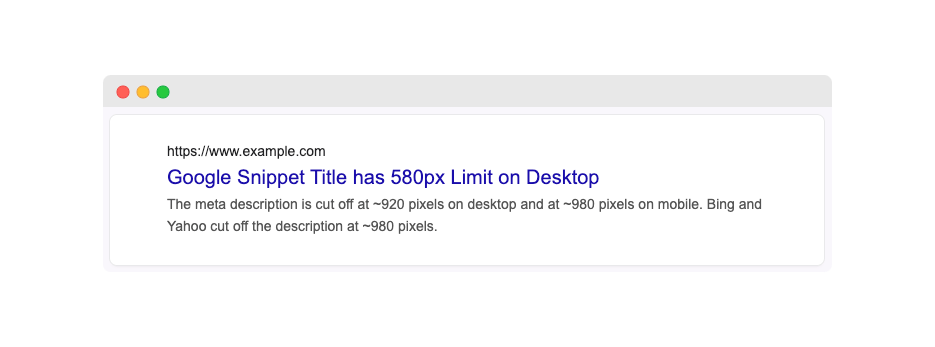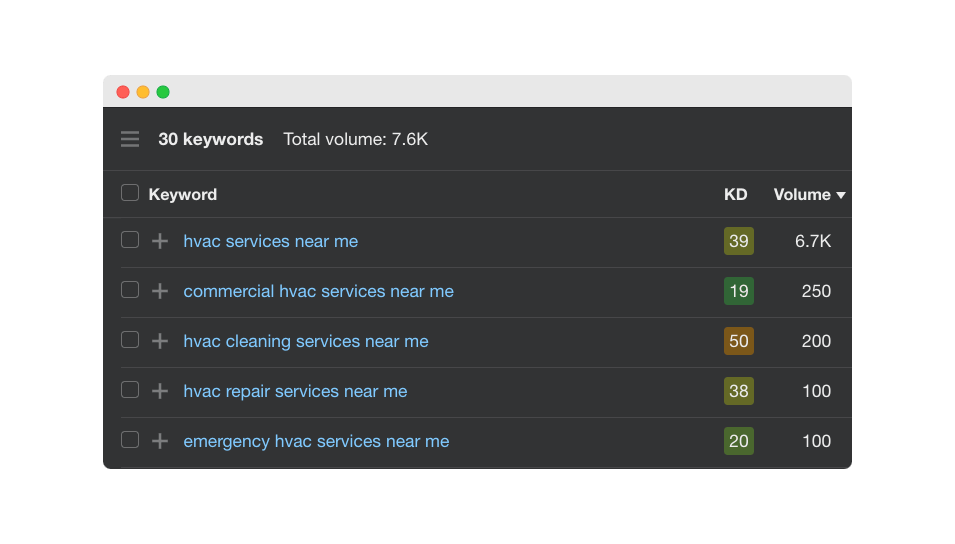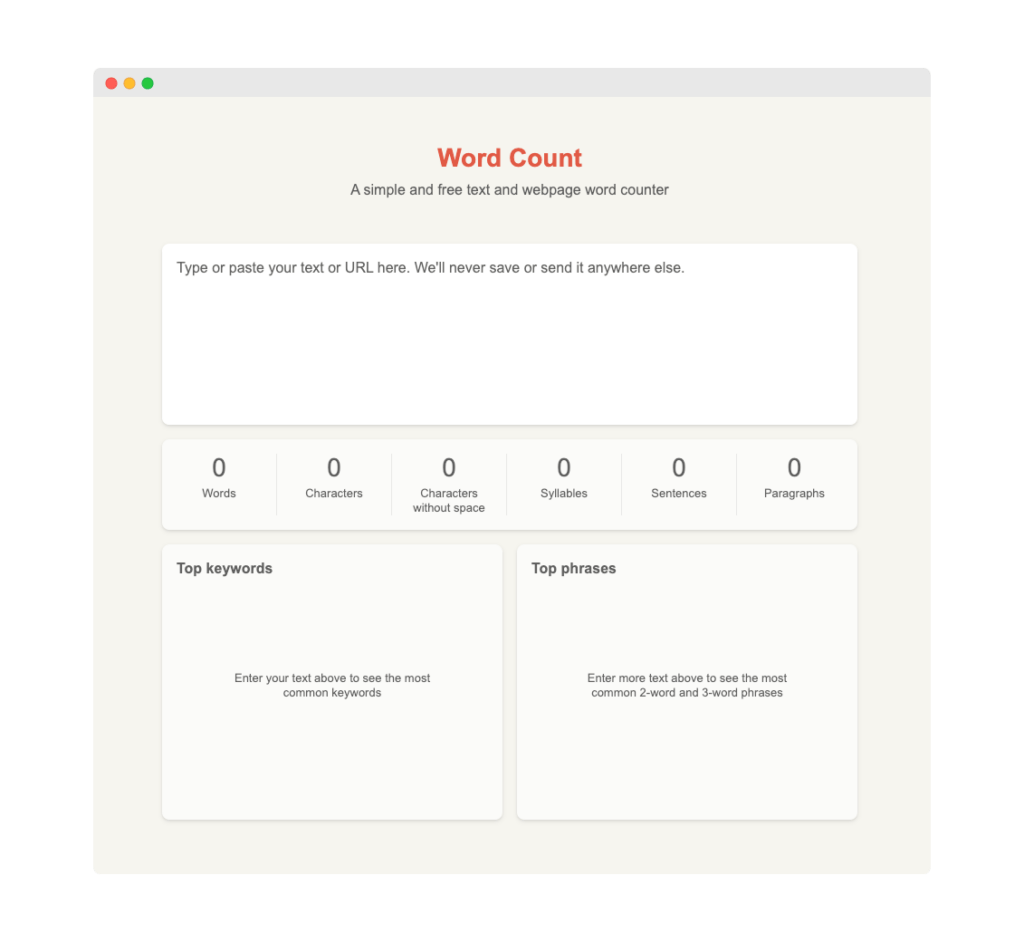The Top 5 Reasons You’re Not Ranking in Google (And How To Fix Them)
Why am I not ranking for my keywords?
If you’re finding that you’re not ranking in Google as high as you’d like for your target keywords, there could be a number of reasons why. By understanding these factors, you can work to correct them and improve your site’s visibility. In this article, we’ll explore the top most common reasons why websites aren’t ranking in Google.
Is your page being indexed by Google?
Often a commonly overlooked reason is that your page isn’t being indexed by Google.
This is can be a major reason you’re not ranking in Google but one that can be easily fixed.
You first want to make sure the page itself is set to “index” and not “noindex.”
If you are using an SEO plugin like RankMath, this is a quick check on a per-page basis and in global settings.
Once you’ve established that your page settings are correct, head over to Google Search Console and click on the URL inspection tab.
Enter the page URL that you suspect is not being indexed into the analyzer.

Google Search Console will tell you if your page is good to go or if there are errors. If the page is not indexed, you can request that Google crawl the URL.
Make sure to check back after a few hours to see if Google is indexing the page in question.
Do you have the right keywords?
One of the most important factors for not ranking in Google is not having the right keywords on your website.
When you are targeting specific keywords, it’s important to make sure they are included in strategic places on your site: the title, meta description, header tags, and throughout the body text.

You can use a tool like Google Adwords Keyword Planner, AHREFs, or SEMrush to find related keywords that you may not have considered. There are countless other keyword research tools, but these are the only ones I recommend.
Several studies have examined the accuracy of keyword tools, and these are the top three.
If you are serious about producing content, I would bite the bullet and purchase AHREFs.
Once you have a list of target keywords, it’s important to use them naturally throughout your content. Don’t force them in where they don’t fit – this will only hurt your SEO efforts.
According to a study by SEMrush, 46% of websites aren’t ranking in Google because they aren’t targeting the right keywords.
SEMrush
Keyword search intent is vital to understanding and plays a major role in having the right keywords in your content. You will write different content if a user is asking what the “Best taco food trucks near me” versus “how to make the best tacos.”
Google is spending enormous amounts of energy understanding the nuance of language in regard to search queries. Do your best to align search intent with the content you produce.
Is the keyword too competitive?
Many small sites swing for the fences and target keywords and key phrases that are out of their league. You need to make sure you are targeting keywords that are within reach. Depending on your overall domain rating, backlinks, and other relevant content, you likely need to start small and build up to competitive terms.
Use the KD or Keyword Difficulty within AHREFs keyword explorer to get an idea of how difficult it is to rank in Google for a specific key phrase.

If the KD is over 50, I recommend avoiding that keyword, as it will be very difficult to rank. If the KD is under 20, you have a good chance of ranking with some effort.
Do you have enough content?
When auditing sites that are not ranking in Google, one of the most common issues is not having enough content. This could mean enough content on the specific page or not enough content surrounding a specific topic.
So how do you determine how much content you need to write? First, let’s look at having enough content on a specific page. As a starting point, review the top 5 search results in Google for your targeted phrase.
Use a word count tool like wordcount.com to identify how many words a specific page contains. In some cases, this number could be 4000 words, while in other cases as little as 600 words. Using the average length, you will know how much content your page should have.

Is your website properly optimized?
Make sure your site is working with your content, not against it. Let’s start with some basics.
As step one, focus on the “3 kings,” which are:
- page title
- meta description
- heading 1
Your page title should be clear, concise, and compelling. These titles should rarely be auto-generated. They should be crafted in a way to compel a user to click through to your page instead of the other top 3 results. Make sure you use your target keyphrase in the page title.
This is the snippet of text that appears beneath your page title in Google’s search results. Your meta description follows suit here. Your meta description should also be clear, concise, and compelling.
Just like your page title, you want to use your target keyphrase here but make sure it reads naturally.
Your heading 1 should also use your target keyphrase and appear at the top of the page. These are the most important on-page SEO factors; if you have these optimized, you’re well on your way. For a deep dive, check out our article about optimizing content for SEO.
If you’re not ranking in Google, it’s likely because of one (or more) of the following reasons:
- You aren’t targeting the right keywords.
- Your website isn’t properly optimized.
- You don’t have enough content.
Start by auditing your site and making sure you’re targeting the correct keywords for your business, using enough content, and optimizing your site for SEO. If you need help getting started with SEO for your business, reach out to us – we’d be happy to assist!
About the author
Mike McKearin is the CEO at WE•DO | SEO Expert | Adventurer | Optimist
Mike has a long history in the world of SEO, studying it and testing various methods for over two decades now. When he's not working on his business or being a dad, Mike loves to go on adventures with his family - they live in the beautiful state of North Carolina and love exploring all that it has to offer. He's an optimist who believes that anything is possible if you set your mind to it, and he wants to help others achieve their dreams through WE•DO
Free WordPress SEO Analysis
Want more traffic to your WordPress website? Get a free WordPress SEO Analysis and see how you can improve your traffic to get more sales online.
*This is a human SEO audit. Once we review your site we will reach out to schedule a time to review with you.